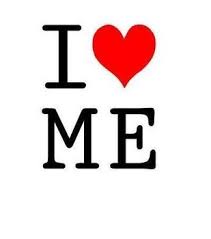
As a child, your world is defined for you by your parents. You know who you are because of your parents. I’m sure you remember your parents telling and re-telling a story about you as a young child. A story about something you did as a child that gave your parents a good idea about who you are.
I’ll use a personal example to demonstrate this: Last summer our cat, Borris, was gearing up to fight a street cat in our driveway, and before I knew what to do, my daughter jumped in between the two agitated cats, tackled Borris, tucked him underneath her arm, and ran him to safety. That day, I discovered my daughter had GUTS. Not normal, run-of-the-mill guts, but real guts. And when she gets anxious or nervous about a new challenge in her life, I remind her of that day. Essentially, I am telling her who she is. That’s my job.
Things change, however, in high school and college. You are more independent and closer with friends. You share more of your life with kids your age. This is developmentally appropriate because a teenager’s main task, psychologically speaking, is independence. Some people also call it identity formation. Basically, it’s the time in a human being’s life when they begin to figure out who they are in relation to the world. It is one of the most daunting tasks in life and can cause a great deal of confusion, conflict, and uncertainty.
Because a teenager’s identity is not completely consolidated, they spend a lot of time oscillating between knowing who they are and using data from the outside world to tell them who they are. For this reason, data from the outside world carries a great amount of weight. If it is negative data, it can cause intense pain, confusion, and disorientation sometimes.
Imagine for a moment that your identity has a structure, a teenager’s identity would have one or two support beams holding it up, but several are in the process of being built, so the structure, itself, is fragile. It is not strong or consolidated yet. An adult’s identity has many solid and stable support beams– because an adult has had a tremendous amount of time to build their identity. It is stable. The difference is substantial. So, if I hit a tennis ball as hard as I can at an adult’s identity, the ball will bounce off. If I hit a tennis ball at a teenager’s identity, it might knock it down.
So, it is a catch 22. Teenagers are looking for data from the outside world to help figure out who they are, but sometimes this data is painful, like a bad grade, a bad tennis match, or a rejecting friend, and because a teenager’s identity is fragile, it can derail them for a while. Parents should also be informed about Teen Suicide to be more aware.
So, what do you do? Nothing. What you are going through is normal—painful, but normal. You will be confused, hurt, and ashamed a lot in the next few years and you are not alone because unless your friends are narcissists, they are going through the same thing.
One important thing to keep in mind is that using only one source from the outside world to tell you who you are, is not a good idea. Yes, the opinion others have about who you are is important. It sure is. Yes, the opinion of influential adults in your life about who you are is important too. Yes, your friend’s opinion about who you are is important. But, try to balance these opinions, and do not forget your own. Deep down, even though you are confused, you know who you are. And if you can’t remember, call your mom or dad and ask them about their favorite memory of you when you were really little. Chances are you saved a cat or a baby bird or a stray dog or something in your life. Good Luck and believe in yourself.

Her latest book, due out in April Loving Well. is available for pre-order here. She is also the author of Emotional Terrorism: Breaking the Chains of A Toxic Relationship, 2015.
